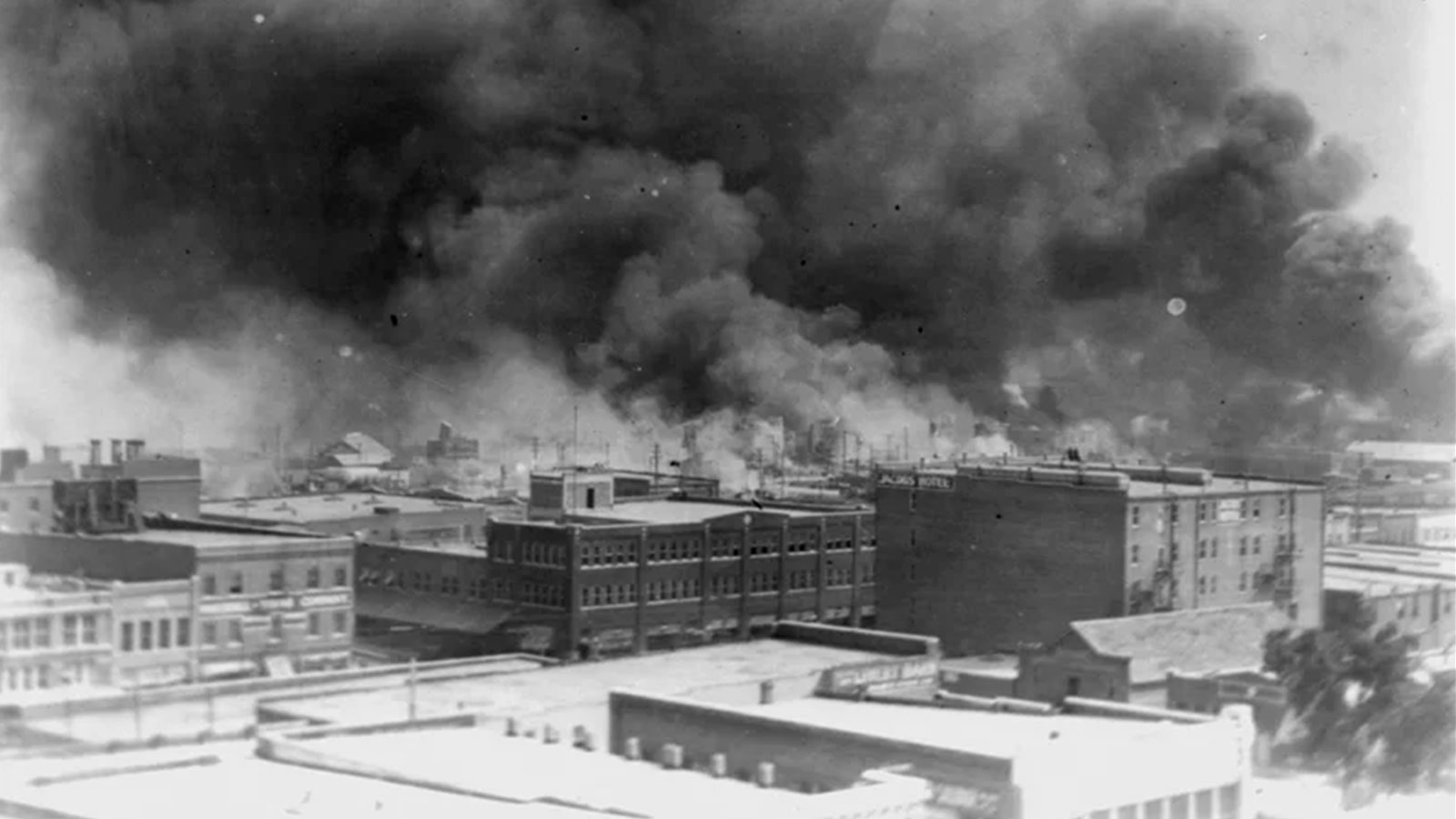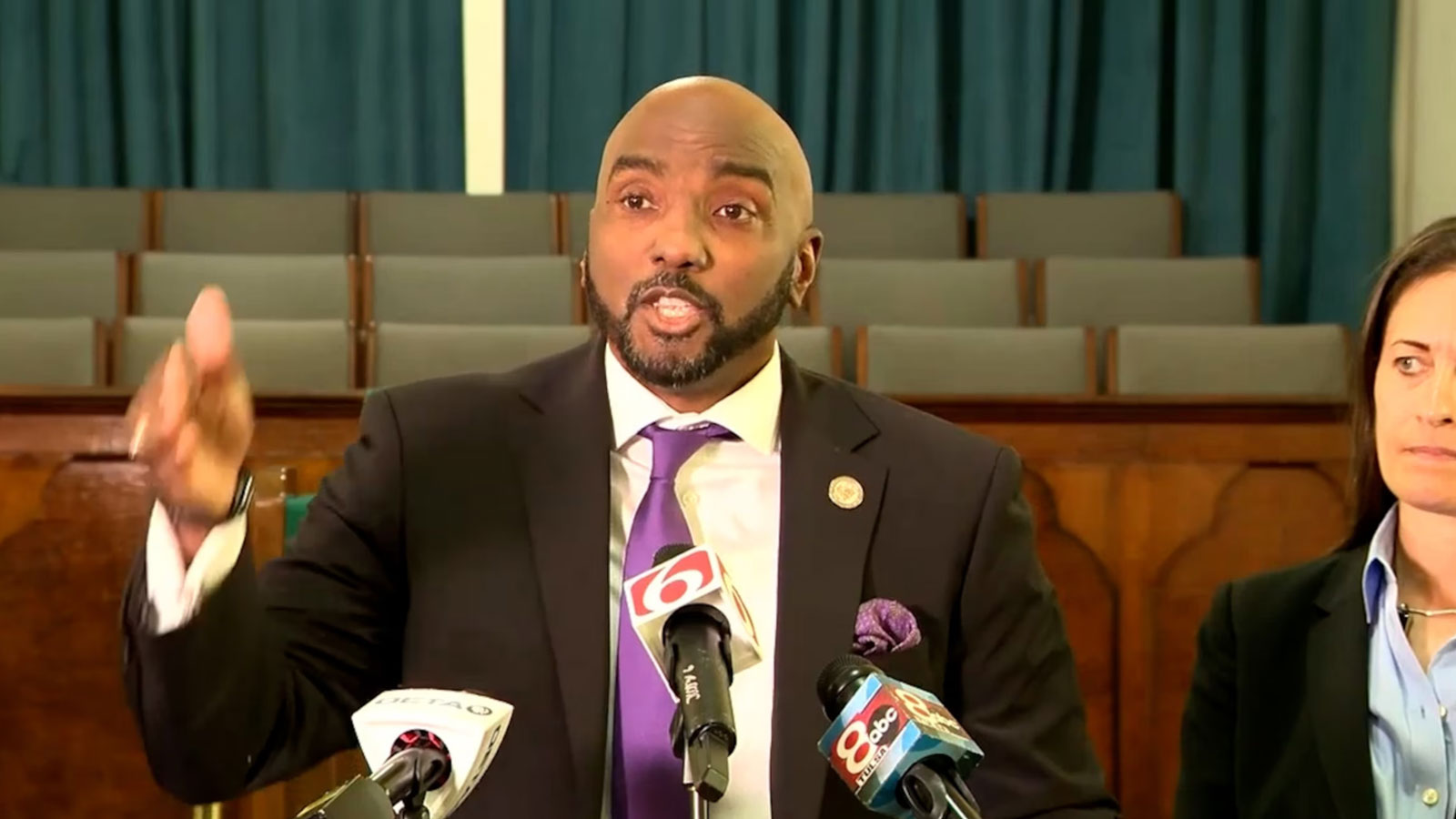Judge Caroline Wall dismissed the Tulsa Race Massacre survivors’ 2020 lawsuit “with prejudice.”
Attorney reads statement from Tulsa Race Massacre survivors on lawsuit dismissal
An attorney for the remaining survivors of the Tulsa Race Massacre announced that the dismissal of the lawsuit will be appealed to the Oklahoma Supreme Court.
***
Tulsa Race Massacre survivors and their attorneys gathered Monday afternoon to respond to the dismissal of their lawsuit seeking reparations for the 1921 deadly event.
This gathering comes just days after Oklahoma Judge Caroline Wall dismissed the 2020 lawsuit “with prejudice,” meaning the ruling is a final and permanent dismissal, and the case cannot be refiled.
According to attorneys, the survivors found out from a reporter about the dismissal and are still awaiting a written order for the motion.
The 1921 massacre left 300 African Americans dead, and thousands homeless after a white mob attacked Greenwood, a town known as “Black Wall Street.” The lawsuit hoped to seek reparations for the long-term effects of the event.
Lead attorney for the lawsuit, Damario Solomon-Simmons, plans to file an appeal with the Oklahoma Supreme Court.
“We know we have a conservative Supreme Court, but we believe the law and the facts are so clear, that any lawyer [and] any judge that’s actually looking at the documents will say, ‘Hey, you can let these people into court,'” he said during the Monday press conference.
The survivors and attorneys also called on the the Department of Justice and President Joe Biden to open a federal investigation into the Tulsa Race Massacre.
“Despite Tulsa and America’s attempt to silence change and gaslight the facts and truth about collective racial history and trauma, we as survivors– and all of those that believe in racial justice– we will not sit quietly or passively to allow mistruths or injustice to persist,” a statement on behalf of the three survivors of the case read.
Filed under Oklahoma’s public nuisance law, Lessie Benningfield Randle, Historic Vernon A.M.E. Church, Inc., Laurel Stradford, Ellouisa Cochrane-Price, Tedra Williams, Don M. Adams, Don W. Adams, Stephen Williams and The Tulsa African Ancestral Society were listed as plaintiffs, according to the original 2020 lawsuit.
The petition sought to “remedy the ongoing nuisance caused by the 1921 Tulsa Massacre in the Greenwood District of Tulsa and to obtain benefits unjustly received by Defendants based on the Massacre,” the lawsuit read.
Regarding the dismissal, the mayor’s office has not received Wall’s opinion on the motion nor a written order.
“The City remains committed to finding the graves of 1921 Tulsa Race Massacre victims, fostering economic investment in the Greenwood District, educating future generations about the worst event in our community’s history and building a city where every person has an equal opportunity for a great life,” Tulsa Mayor G.T. Bynum said in official statement.
In addition to the city of Tulsa being listed as a defendant, the lawsuit also listed the Tulsa Regional Chamber, Tulsa Development Authority, Tulsa Metropolitan Area Planning Commission, Board of County Commissioners for Tulsa County, Oklahoma, Tulsa County Sheriff Vic Regalado and the Oklahoma Military Department.
In September of 2022, a second amended complaint was filed, omitting the Tulsa Development Authority and the Tulsa Metropolitan Area Planning Commission from the defendant list.
The three plaintiffs listed on the amended complaint are Randle, Viola Fletcher and Hughes Van Ellis, Sr., all Tulsa Race Massacre survivors who are over 100 years old.
Solomon-Simmons told press the appeal will include all of the plantiffs from the original lawsuit, including the three survivors.

In this 1921 image provided by the Library of Congress, smoke billows over Tulsa, Okla., following the killing of hundreds of people in “Black Wall Street” in the city’s prosperous Greenwood enclave.
(Alvin C. Krupnick Co./Library of Congress/AP)
“From the period immediately after the Massacre until the present day, Defendants actively and unreasonably, unwarrantedly, and/or unlawfully thwarted the community’s efforts to rebuild, neglecting Greenwood and predominately Black, North Tulsa communities,” the amended complaint stated. “Instead, Defendants redirected public resources, which should have been used to abate the nuisance surrounding Greenwood, to benefit the overwhelmingly white parts of Tulsa.”
The survivors and descendants of the town were never compensated by insurance companies, and resulted in financial disparities in the Tulsa community that are still present today, the lawsuit argued.
“Plaintiffs and thousands of Black Greenwood and North Tulsa residents and their descendants have experienced, and continue to experience, insecurity in their lives and property, and their sense of comfort, health and safety has been destroyed,” the lawsuit continued.
Although Wall dismissed the case, she previously ruled against the defendant’s motions to dismiss the case and allowed the case to continue.
The three survivors were not present at the Monday press conference, but Solomon-Simmons read a statement on their behalf.
“After taking our case under advisement for the better part of two years and originally permitting the case to proceed just a year ago, Judge Wall strikingly backpedaled on her prior order, permitting us, the three living survivors of the massacre, to proceed with our public nuisance litigation, seeking justice for the continuing harms of a massacre,” the statement read. “Without a doubt Judge Wall failed to review this case within the scope of well established Black letter Oklahoma law. We were forced to plead this case beyond what is required by under Oklahoma standards, which is sadly a familiar circumstance when Black Americans ask the American legal system to work for them.”
The three survivors still experience flashbacks of the event, and some “constantly relive the terror,” according to the lawsuit.
The oldest survivor, Fletcher, recently published a memoir about her life “in the shadow” of the massacre, and it will be publicly available in the upcoming weeks.
Source: ABC News















